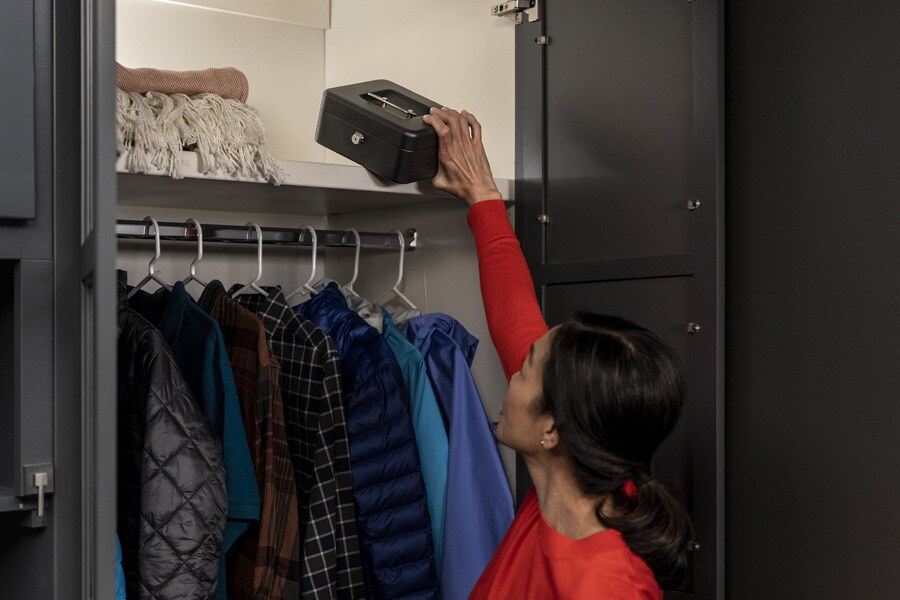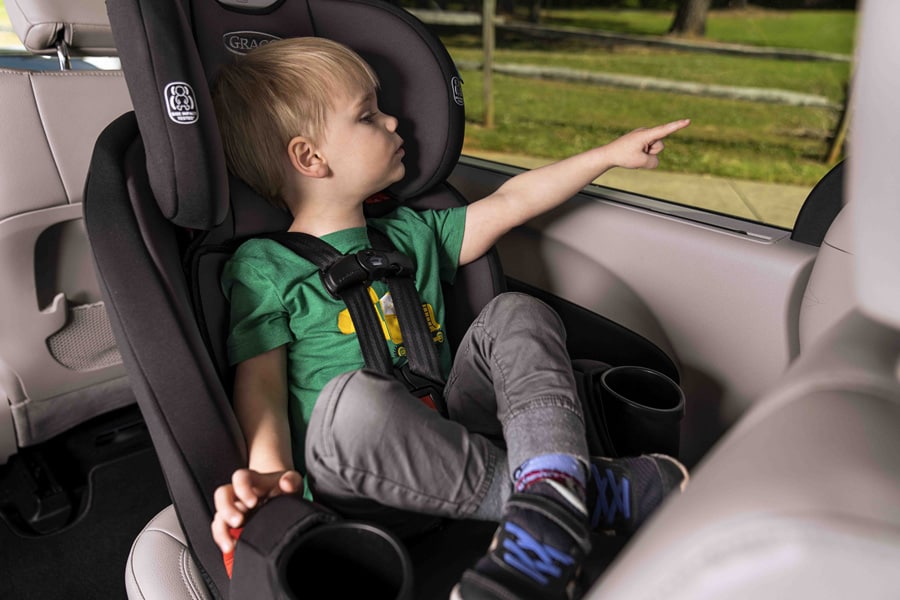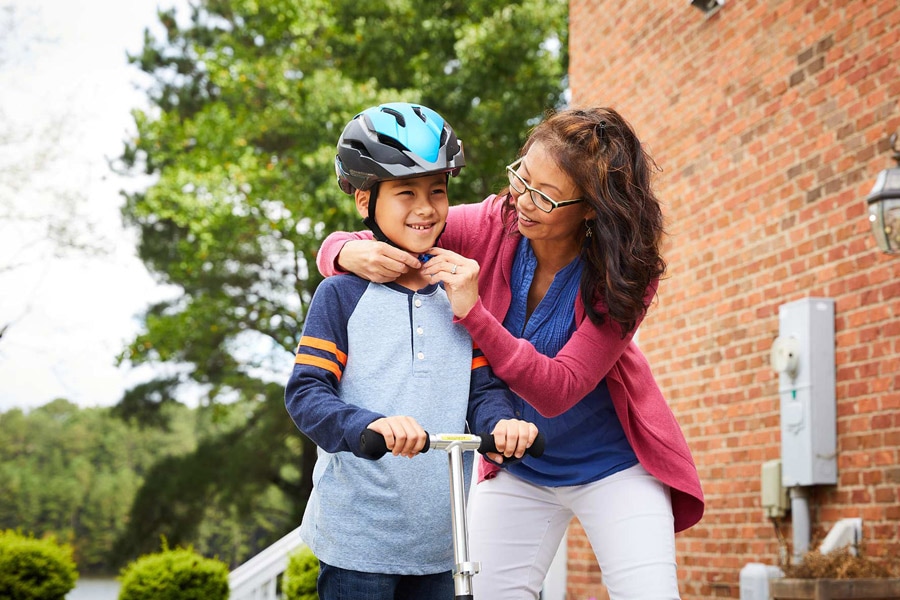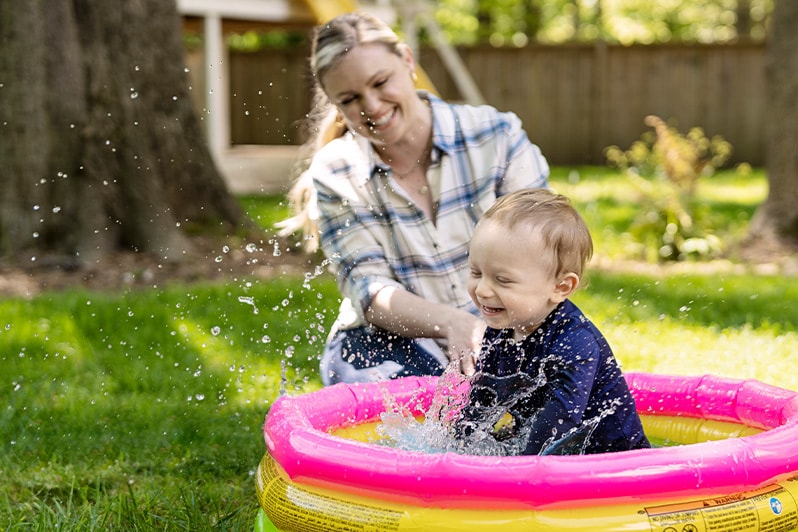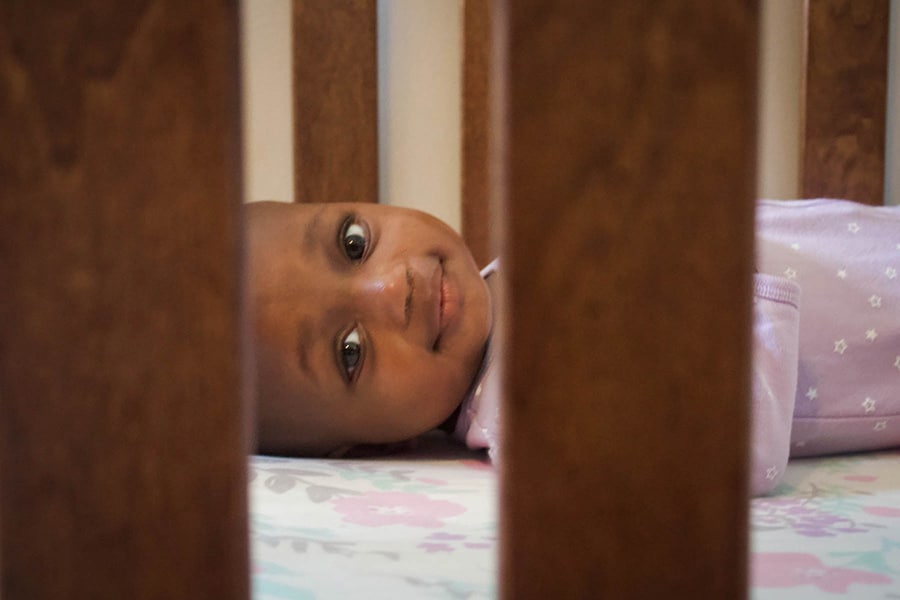Home Safety Tips for Parents
Did you know unintentional injury is the leading cause of death in children ages 1 to 19 in the U.S.? In fact, every 4 seconds, a child is treated in an emergency department for injury.
While we can’t protect our kids from everything, many of these injuries are 100% preventable. That’s why it’s important to brush up on home safety. Read on for home safety tips from our Children’s Healthcare of Atlanta emergency department doctors.
In this article:
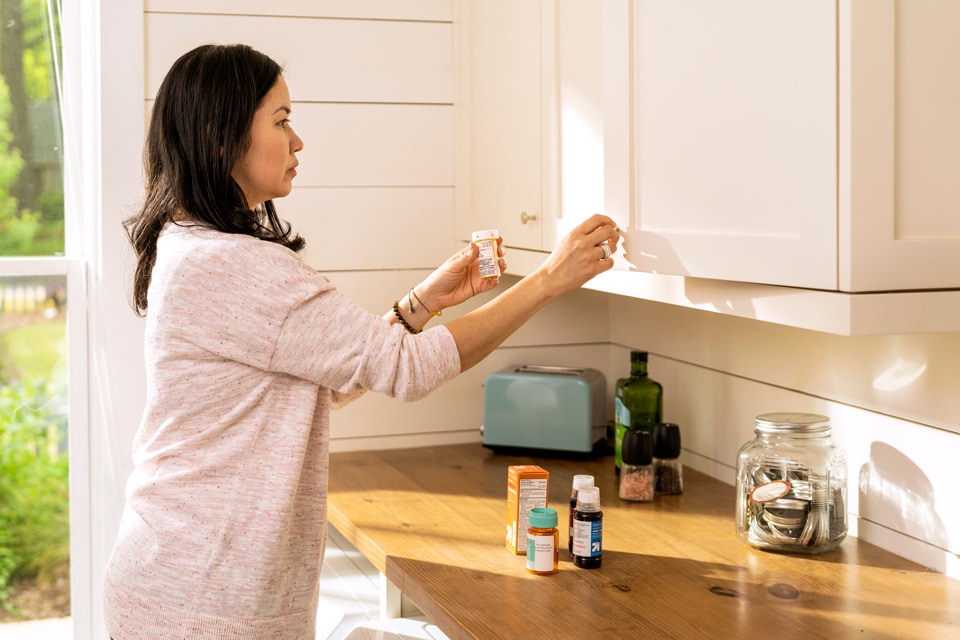
How should medications and chemicals be stored in the home?
Each year, thousands of children are treated in emergency departments for taking the wrong amount of medicine, or finding and ingesting medication or household chemicals. The best way to prevent these unintentional injuries is to store these items properly.
Here’s how you can securely store medication and household chemicals:
- Store medications and chemicals up, away and out of sight. Remember that containers are child-resistant, not childproof.
- Consider storing all medications or drugs in a small safe or lockbox. This adds a layer of security to keep kids and teens safe.
- Store medicine safely after each use. Even if your child takes the same meds every day, or if they’re sick and need medicine throughout the day, you should still store medicine safely.
- Talk to guests about safe storage. Ask visitors to keep purses, bags or coats with medicine in them up, away and out of sight.
- Save the poison control number in your phone. Save 1-800-222-1222 in your phone so it’s readily available in case of an emergency.
Teach kids how to take medicine
As kids get older and develop more independence, talk to them about how medicine can be dangerous, and show them how to take it safely.
Here are tips for teaching kids how to take medicine:
- Teach young children to only take medicine from a trusted adult. Teach older kids to ask an adult before taking medicine.
- Show kids how to read prescription labels. Teach them to only take medication prescribed to them and to follow the instructions on the label.
- Talk to kids about over-the-counter (OTC) labels and stress how important it is to follow these instructions, just like a prescription. Teach them where to find dosage information, such as how much medicine to take and how often.
- Talk to kids about why dosage is important. Taking too much medicine (even OTC meds, like Tylenol or Midol) can cause severe organ damage or even death.
- Tell kids to keep medicine in its original container so the drug facts and dosage are always available.
And, of course, teach older kids and teens about storing medicine safely. Especially if there are younger children in the house.
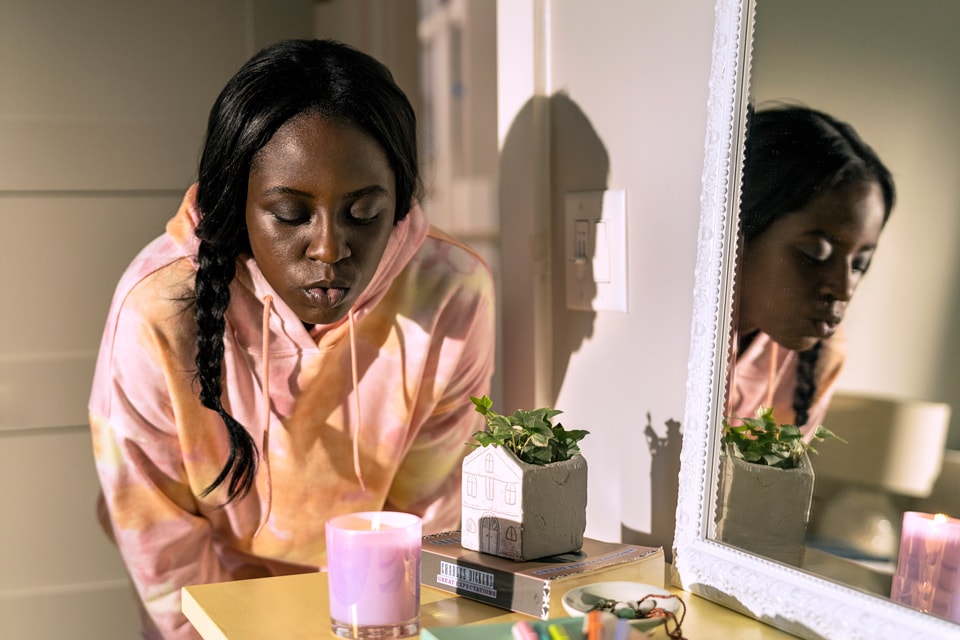
Fire safety at home
Prevent fires and burn injuries by practicing fire safety at home. Here are our emergency department doctors’ top tips:
- Keep grilling activities outside. Keep your grill away from your home and garage, and never grill inside.
- Watch curious little hands around hot surfaces. Use back burners on the stove, and make sure pot and pan handles are facing toward the back so they’re harder for little hands to reach. And always watch children around the stove, oven and grill. Older kids and teens may be flexing their independence muscles by prepping entire meals, but remind them to be careful with hot items from the microwave or stove.
- Blow out any candles, and ensure the stove and oven are off before bed. Just as you may double-check that doors are locked, make sure everything is off before turning in.
- Make sure detectors are armed. Test your smoke and carbon monoxide detector batteries every 6 months to ensure they’re up to date.
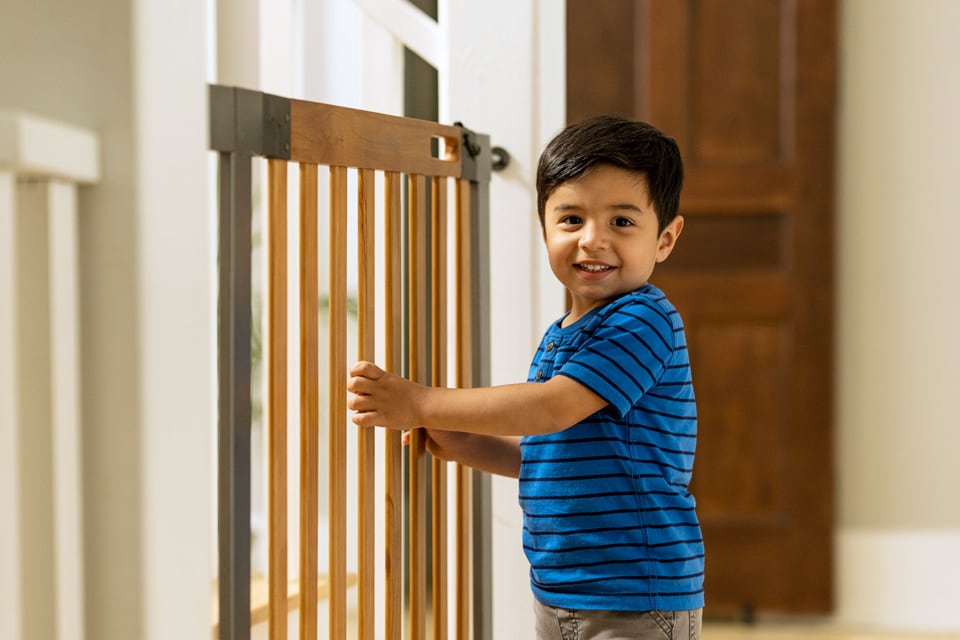
Making your home "baby proof"
Because kids are so curious, no house is ever truly baby proof. But these home safety tips can help keep little ones as safe as possible:
- Anchor all furniture and TVs to the wall. This will help prevent tip-over injuries. Even if you think furniture is secure, kids are known to pull and climb on things as they learn and explore.
- Use gates around stairs and keep young children securely strapped in highchairs and swings.
- Keep infant sleep spaces clear of loose items. This is part of the ABCs of safe sleep for infants.
- Keep little ones within arm’s reach around water, even in the bathtub.
- Avoid common food choking hazards. Be mindful of small toys or items your child could swallow, like button batteries.
- Practice safety rules on at-home playsets.
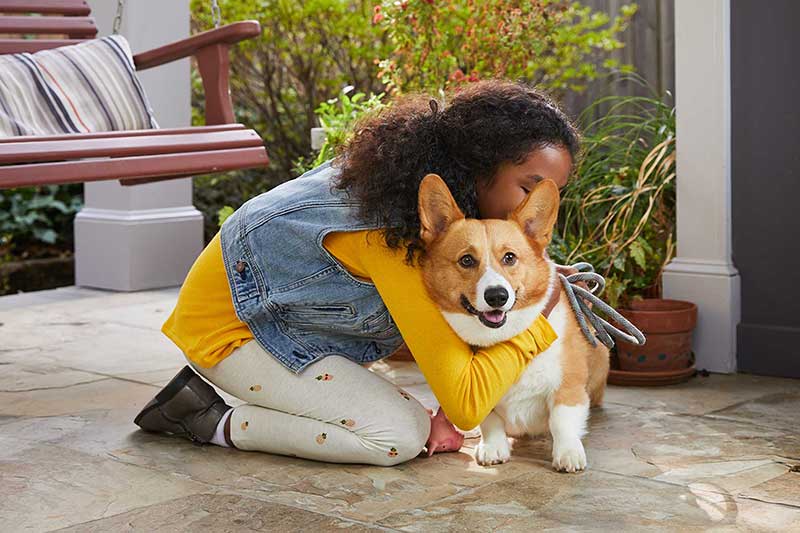
Practice pet safety with kids
Pets are great companions for kids. In fact, hugging a pet is one of our favorite healthy coping skills. Whether or not you have a furry friend at home, remember to teach kids to respect pets’ space.
Respecting pets’ space
Many dogs are super tolerant of our kids’ hugging and tugging, but even so, it’s important that children learn that pets deserve their own space. When dogs moan, groan or growl that is their way of saying, “I have had enough, and I would like to be left alone.”
Teach kids to respect this limit by giving pets the space they need.
Asking for permission to pet
When your child is meeting a new pet, teach them to always ask the owner’s permission before trying to touch or pet the animal. If the owner says no, it’s important to respect that limit. You can explain that some pets don’t like to be touched or aren’t allowed to be pet, because they’re doing an important job.
